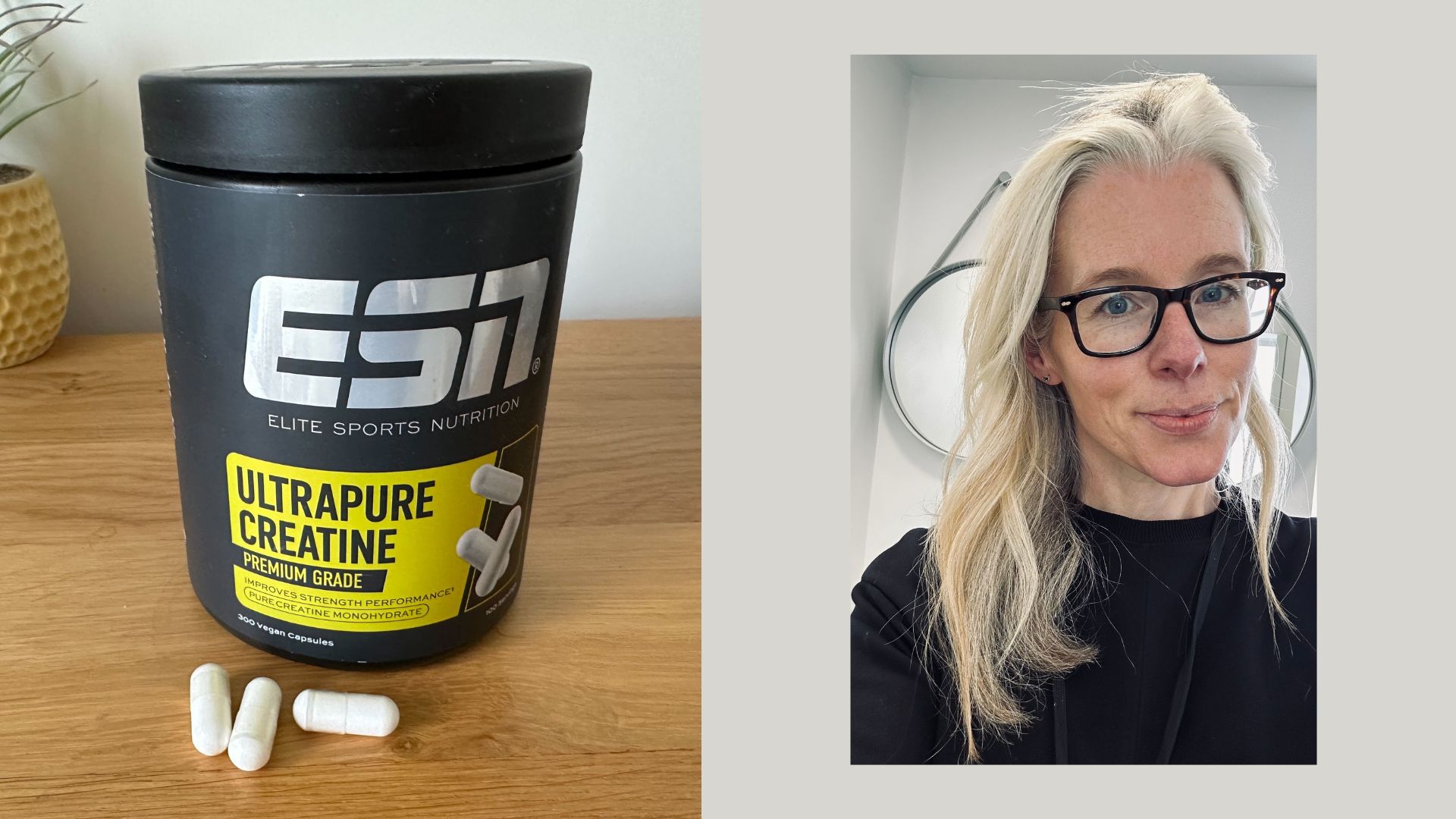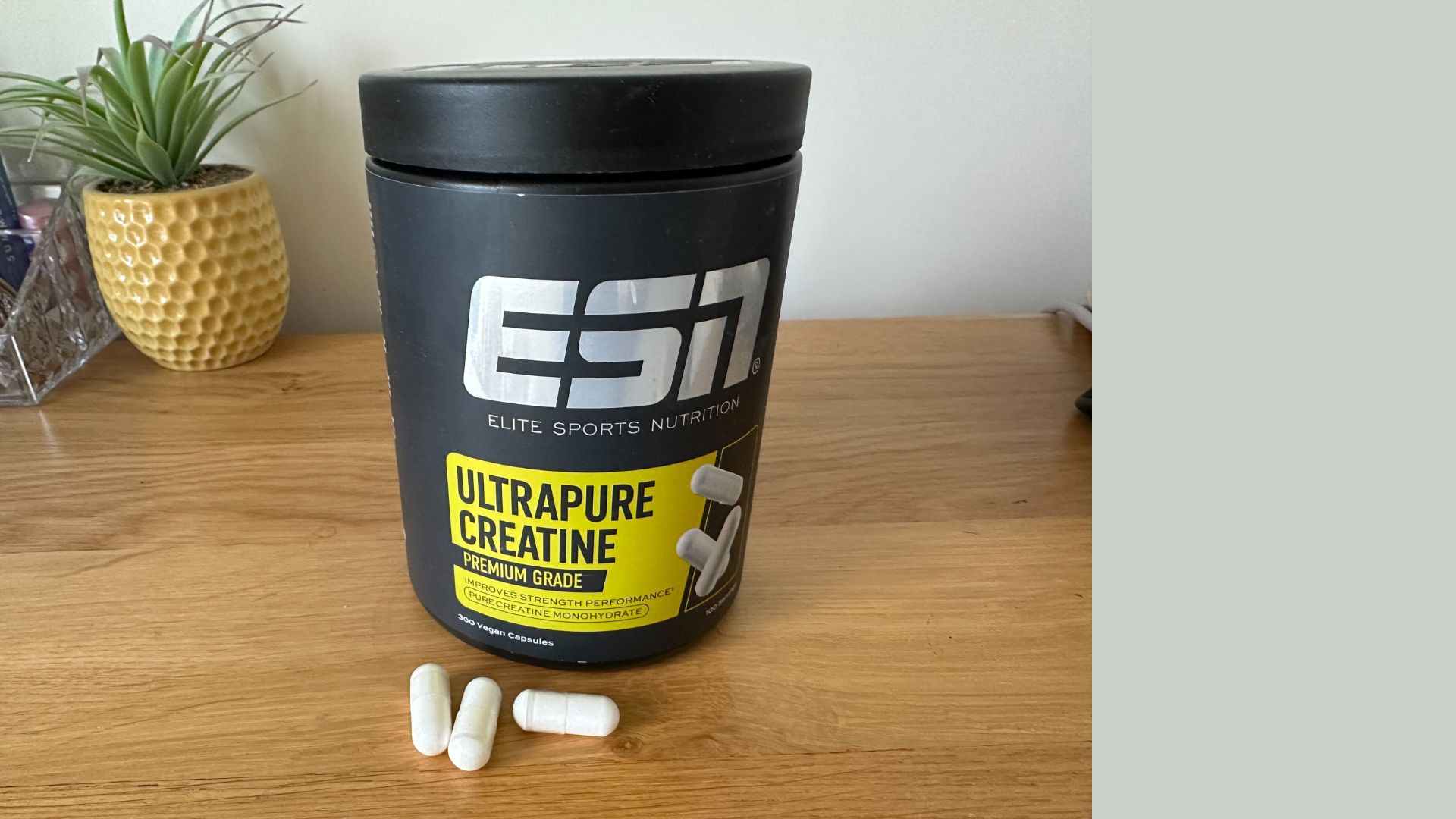I took creatine every day for a month - these are the surprising brain benefits no one talks about
Creatine is known for its physical benefits, but after trying it for a month, it's the mental benefits I can't stop talking about


When I log into social media, it's clear the algorithm has recognised me as a woman in her mid-40s. I get served dietary advice for midlife every day. All kinds of supplements, diets, and dos and don'ts for menopause. Creatine is the only supplement that's ever caught my interest.
As a fitness enthusiast, I've heard about the benefits of creatine for women before. Creatine is a natural substance made by the body, and it's in meat and fish. It's one of the body's natural energy sources for muscle movement, so many women (and men) also take it as a supplement to improve muscle strength and maintain mass.
After reading up on it and speaking to friends who swear by the physical and mental benefits, I decided to try it. I've suffered from perimenopause symptoms like brain fog and memory loss for a while now, so I wanted to see if creatine could help with my cognitive function as well as my physical fitness.
For the last month, I've taken three ESN Ultrapure Creatine tablets a day, just before bed. You can take them any time - I was just keen to head off the potential stomach or bloating issues that a friend had experienced.
To ensure as much of a fair test as possible and to be able to attribute any noticeable changes to my physical and mental health during this time to creatine, I kept everything else - sleep, diet, exercise, lifestyle - the same. Here’s how I got on.
Creatine benefits for the brain
1. I'm less forgetful
At 45 and in the thick of perimenopause, I had really been struggling with my memory, to the point where I would struggle to remember something I had said not a minute before. I’d heard friends say they’d forget why they walked into a room and think ‘how?’, but it's a very real - and often scary - symptom of menopause.
Since taking creatine, I have noticed a significant improvement in my memory. Where I was forgetting things multiple times a day, it's now just the odd occasion where I need a minute to recall what has happened or why I am doing something.
Sign up for the woman&home newsletter
Sign up to our free daily email for the latest royal and entertainment news, interesting opinion, expert advice on styling and beauty trends, and no-nonsense guides to the health and wellness questions you want answered.
It’s a benefit I've not noticed in the best possible way. I don’t feel forgetful as much, and therefore less anxious, and not having those feelings as part of my everyday life has worked wonders for my mental health.

I took ESN Ultrapure Creatine and found it sat well in my stomach, but the capsules were very large.
2. I'm less tired
A mid-afternoon slump was a very common occurrence for me. I sit in front of a computer screen all day, and by 3pm (if not before), my eyes feel like they need pinning open. My brain feels like it’s only firing on one cylinder.
After two weeks of taking creatine, I noticed a real difference in how tired I felt during the day, particularly when looking at a screen. I have three young children, and so sleep can be a bit hit and miss, but I was able to track my sleep during this time with my Apple Watch Series 10, and the amount of shut-eye I got was consistent with the three weeks previous.
3. I can concentrate for longer
This very much feeds into being less tired, but I have noticed my concentration span is longer in recent weeks, and I am less easily distracted by outside influences (namely, social media).
Perimenopause for me introduced a whole new level of forgetfulness and confusion, but creatine has definitely helped my mind stay focused.
4. I feel like my normal self again
Being confused, like, really confused, is another really scary menopause symptom. There have been times in the last year where I have felt so lost and overwhelmed by certain social situations, none of which have been new to me.
It was a few weeks before I noticed creatine had taken the edge off that, but it's certainly helped me feel more confident in navigating everyday life again.
What about the physical benefits?
While I was primarily focused on the cognitive benefit creatine might have during this test, I absolutely noticed improvements in my physical strength too. I have been strength training for over a decade now so personal bests don't happen often anymore.
You can imagine my excitement in my fourth week of taking creatine then, when I noticed the dumbbells I've used for months in my usual training program felt easier than usual.
I subsequently upped my weights, only by a kilo or two for different exercises, and while challenging, I have been able to consistently stick to heavier weights in my training since. The feeling of accomplishment, joy and empowerment this has given me recently is invaluable.
I haven’t seen any physical changes to my physique as a result of taking creatine, however, I am confident that with the increase in weights I am now able to use, my muscle mass will increase over the next few months as a result.
What do the experts say about creatine benefits for the brain?
Creatine is one of the most researched supplements in the world, alongside protein powder for women. Plenty of research backs up creatine benefits for the brain, with one review published in Frontiers in Nutrition showing that the supplement had "significant" positive effects on memory, attention time, and processing speed time. Importantly, given that most research is done on men, the positive effects were found more so in women.
"Creatine is often associated with muscle health, but it’s increasingly recognised for its brain-boosting potential, especially in women over 45. As oestrogen declines, so does mitochondrial efficiency. Creatine helps restore cellular energy by supporting energy production. This can aid cognitive function, mental clarity, and mood stability during perimenopause," explains Dr Tamsin Lewis, a neuroscientist and functional medicine specialist.
"The brain is a high-demand organ, and creatine helps fuel it more efficiently, particularly under stress or sleep deprivation," she says.
Can anyone take creatine?
As with any supplement, it's important to speak to your doctor before introducing anything new into your routine. However, most women will find they can take creatine.
"It’s a simple, well-tolerated supplement that can make a meaningful difference to cognitive resilience in midlife women," says Dr Lewis.
However, the physical benefits may be limited if you don't regularly do at least one type of strength training or short-duration, high-intensity activity like sprinting, as creatine best supports this type of movement. You'll still get the mental health benefits.
This article is for general interest and is not intended to suggest a course of action that might be suitable for you. Always consult a licensed healthcare professional before making decisions concerning your health and wellbeing.

Kerrie is the editor of woman&home (digital). As a woman&home reader and senior digital editor with over a decade's experience, Kerrie’s main purpose is to ensure the brand delivers high-quality, relevant content to help enrich and improve women’s lives – a responsibility she feels hugely passionate about.
-
 Julianne Moore's ankle-skimming jeans are the cool and casual denim trend to try now
Julianne Moore's ankle-skimming jeans are the cool and casual denim trend to try nowEver the trend setter, Julianne Moore demonstrated how to do jeans and a blazer for chic off-duty style
-
 LED face masks are booming - but have you considered what red light therapy can do for your body? Our beauty editor explains all
LED face masks are booming - but have you considered what red light therapy can do for your body? Our beauty editor explains allFrom benefits to results and risks, here’s everything you need to know about red light therapy for the body